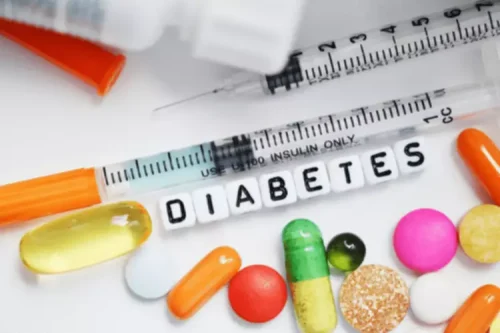
Depending on the specific effects or combination of effects, healthcare providers use different terms to describe different kinds of FASD. This is of concern because among women who consume alcohol during the pregnancy, the majority continues to drink throughout their lactation period. They didn’t find a strong correlation between drinking early in pregnancy and an increased likelihood of these complications, so some people take this to mean it’s A-OK. But this study only looked at short-term outcomes (not long-term effects that might not show up until childhood) and not fetal alcohol syndrome disorders (FASDs).
Having a drink during pregnancy is a personal decision

EVs are membrane-bound vesicles typically ranging from 50–500 nm that carry proteins, lipids, and nucleic acids between cells and be crucial mediators of cell-to-cell communication and disease pathogenesis (Figure 1) [76,77]. Based on the size, mechanism of biogenesis, and biological content, EVs can be categorized into exosomes, microvesicles, and apoptotic bodies [78]. Exosomes are produced from multivesicular bodies, which contain intraluminal vesicles, through endosomal pathways that include internal budding and exocytosis [79,80].

Social and behavioral issues

Centers for Disease Control (CDC), fetal exposure to alcohol is one of the main preventable causes of birth defects and developmental problems in this country. According to a recent CDC report, 10 percent of pregnant women in the United States reported drinking alcohol in the last 30 days. Fetal alcohol syndrome is on the severe end of fetal alcohol spectrum disorders (FASD). FASD is a range of conditions in the child caused by the mother drinking alcohol during pregnancy. For example, this 2014 study looked at 1,303 pregnant women in the United Kingdom and their alcohol consumption before pregnancy and during all three trimesters.
- There are candidate mechanisms that have been identified and researched on their respective contributions to prenatal alcohol-induced fetal damages.
- Alcohol is a known toxicant, causing cell death in a fetus, and a teratogen, altering cell cycle and function in a developing fetal brain, with PAE having immediate and persisting effects on an individual with FASDs.
- These studies add to the cohort of studies that demonstrate the behavioral and anatomical consequences of miRNA dysregulation.
- Many profound maturational changes, including physical, gonadal, and neurodevelopmental changes occur during this time of a person’s life [99].
- The AAP reaffirmed their recommendation that no amount of alcohol should be consumed during any trimester of pregnancy with a video series in 2019.
- While our name still contains a reference to mothers, we are updating our resources with more inclusive terms.
Managing risks while preserving rights
However, higher alcohol levels can interfere with the letdown reflex that ejects milk and may cause the child to have sleep issues. Studies indicate that FASD can have lifelong implications and is irreversible. However, people can avoid it by abstaining from https://ecosoberhouse.com/. Research suggests that 2 hours after drinking, alcohol levels in the fetus are similar to the person who ingested it. If you have a problem with alcohol, don’t be ashamed to ask for help. Addiction is a disease, and most people can’t manage it on their own.
While no amount of alcohol is safe during pregnancy, drinking small amounts before realizing you’re pregnant likely won’t cause any harm. Surgeon General, the American College of Obstetricians and Gynecologists, and the American Academy of Pediatrics advise pregnant women not to drink alcohol at all. “The problem with drinking alcohol during your pregnancy is that there is no amount that has been proven to be safe,” says Jacques Moritz, MD, director of gynecology at St. Luke’s-Roosevelt Hospital in New York. Studies on the mechanisms of EVs that contribute to ethanol’s dysregulation of neural stem progenitor cells need to be further elucidated. In an effort to mitigate the effects of PAE, extracellular vesicles (EVs) have been of interest due to their involvement in intercellular communication, biocompatibility, low toxicity, and non-immunogenic properties [5,74,75].
Track Your Baby’s Development
Alcohol use during pregnancy might affect one baby more than another. You could have one child who is born healthy and another child who is born with problems. There is no known safe amount of alcohol during pregnancy alcohol use during your pregnancy or when you are trying to get pregnant. Experts say that women with certain risk factors should be especially careful about avoiding alcohol while pregnant.
Can a person drink alcohol if they wish to nurse?
Embryonic stem cells that change as a result of the mother’s alcohol consumption early in pregnancy could even impact adult tissue later on. Drinking during pregnancy can cause your baby to develop a serious life-long condition called fetal alcohol spectrum disorder (FASD). The chance that a baby will be affected by alcohol can depend on many factors, including genetics, nutrition, and alcohol metabolism (how the body processes alcohol) of both the person who is pregnant and the developing baby. The risks may be different for the same person in different pregnancies. To prevent fetal alcohol syndrome, don’t drink alcohol during pregnancy. I also use this opportunity to discuss how much they normally drink and to educate them about the risks of drinking during pregnancy.

Studies indicate that both binge drinking and chronic drinking present risks to the fetus. The effects of binge drinking depend on whether it occurs during a critical stage of organ formation. Experts advise that drinking any amount of alcohol while pregnant can pose a severe health risk to the fetus, causing developmental and social issues. Two studies from 2021 support the idea that alcohol consumption during pregnancy isn’t a good idea – both for the overall outcome of the pregnancy and for fetal neurodevelopment.
The study found that rats with PAE had a delay in sexual maturation, among various other differences when compared to control animals. Interestingly, this study showed that PAE rats had alterations in Kisspeptin 1 (Kiss1) gene expression [100]. Kiss1 is a gene that plays an important role in the regulation of the HPG axis and has been previously shown to coincide with the onset of puberty [100]. The alterations in Kiss1 gene expression by PAE could be one mechanism by which pubertal onset is affected in these animal studies. Similar results were shown in a study looking at the development of seminiferous tubules and the onset of spermatogenesis in a rat model [102].